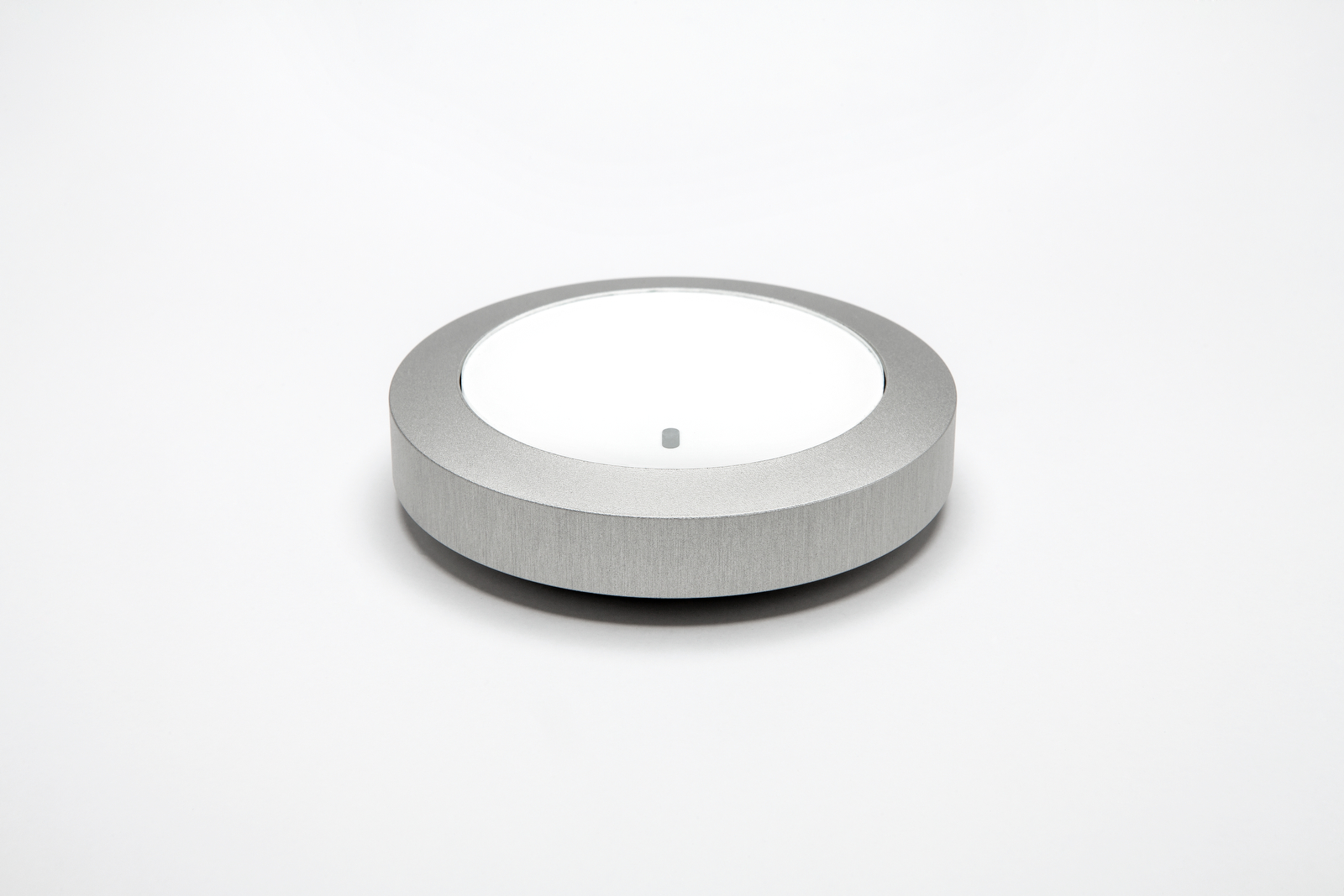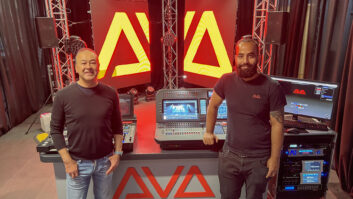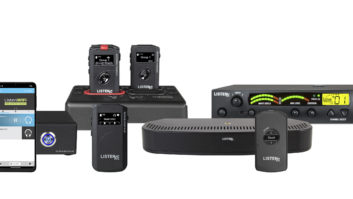
A new smart home controller that aims to break away from screen-based interfaces has exceeded its Kickstarter funding target.
Described as ‘a universal dial for the Internet of Things’, nuimo is the first product from Senic, a hardware and software company based in Berlin. It has been designed and will be manufactured 100% in Germany.
The Kickstarter video shows a woman returning home to prepare a meal for friends. She takes her nuimo controller – a circular device a few centimetres in diameter – off its wallmount and starts using it to control her lighting and music, as a kitchen timer and to open her door when her friends arrive later on.
The nuimo is a freely programmable controller for computers and connected devices. It can connect directly to anything that communicates via Bluetooth Low Energy, including your most used programs, applications and smart devices. It uses gesture recognition, capacitive touch, 360º angular positioning and an 11×11 LED matrix to work with technology such as Sonos speakers, Philips Hue Lights, Soundcloud or Spotify and many more.
To change the device or application being controlled, the user simply presses and holds the surface of the nuimo until an icon appears. They then scroll through the icon set until they come to the one for the application they wish to use.
According to the company, “The focus of Senic is not technology – the focus is people, and how they can benefit from these technologies.”
On 12 May Kickstarter publicly launched in Germany, with Senic’s nuimo controller one of the first Berlin-based campaigns. It reached 100% of its €55,000 funding goal in 32 hours and achieved 235% funding in less than a week. At the time of writing, the total is just under €200,000 – the campaign runs until 12 June.
The Kickstarter campaign follows a successful crowdfunding campaign on Indiegogo, which focused on integrations for computer applications. That campaign reached its funding goal in three days and went on to be funded over 500%, reaching $280,000 in total.
Senic says that future projects will include collaborations with major companies in the automotive and furniture industries.







